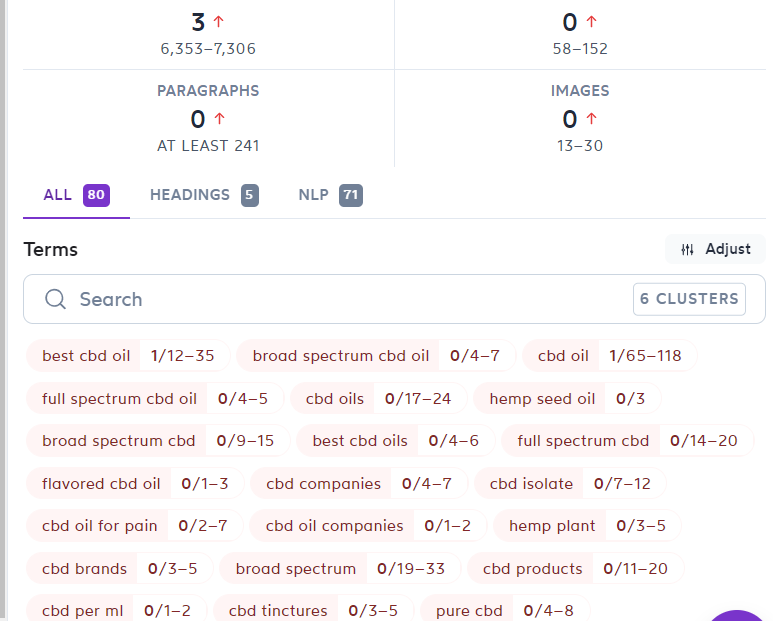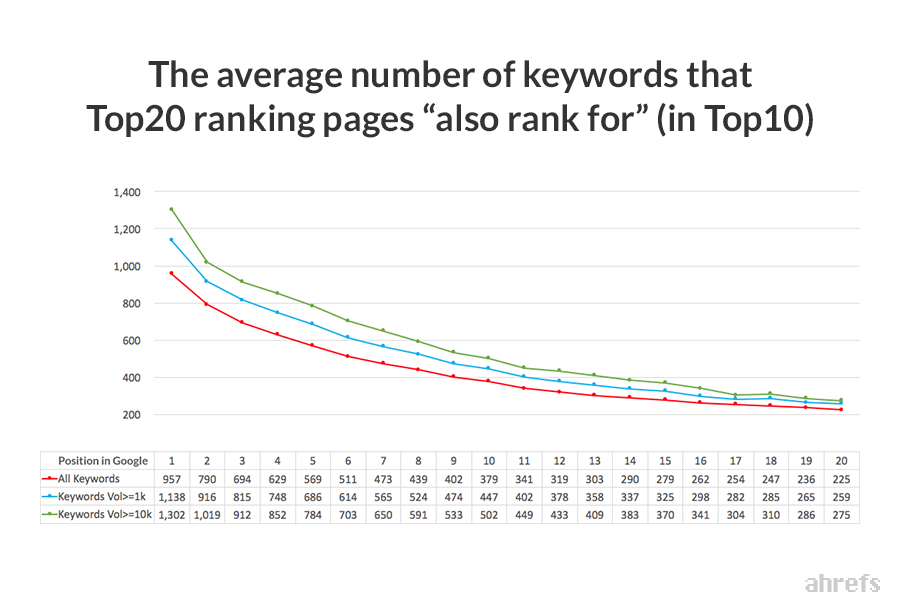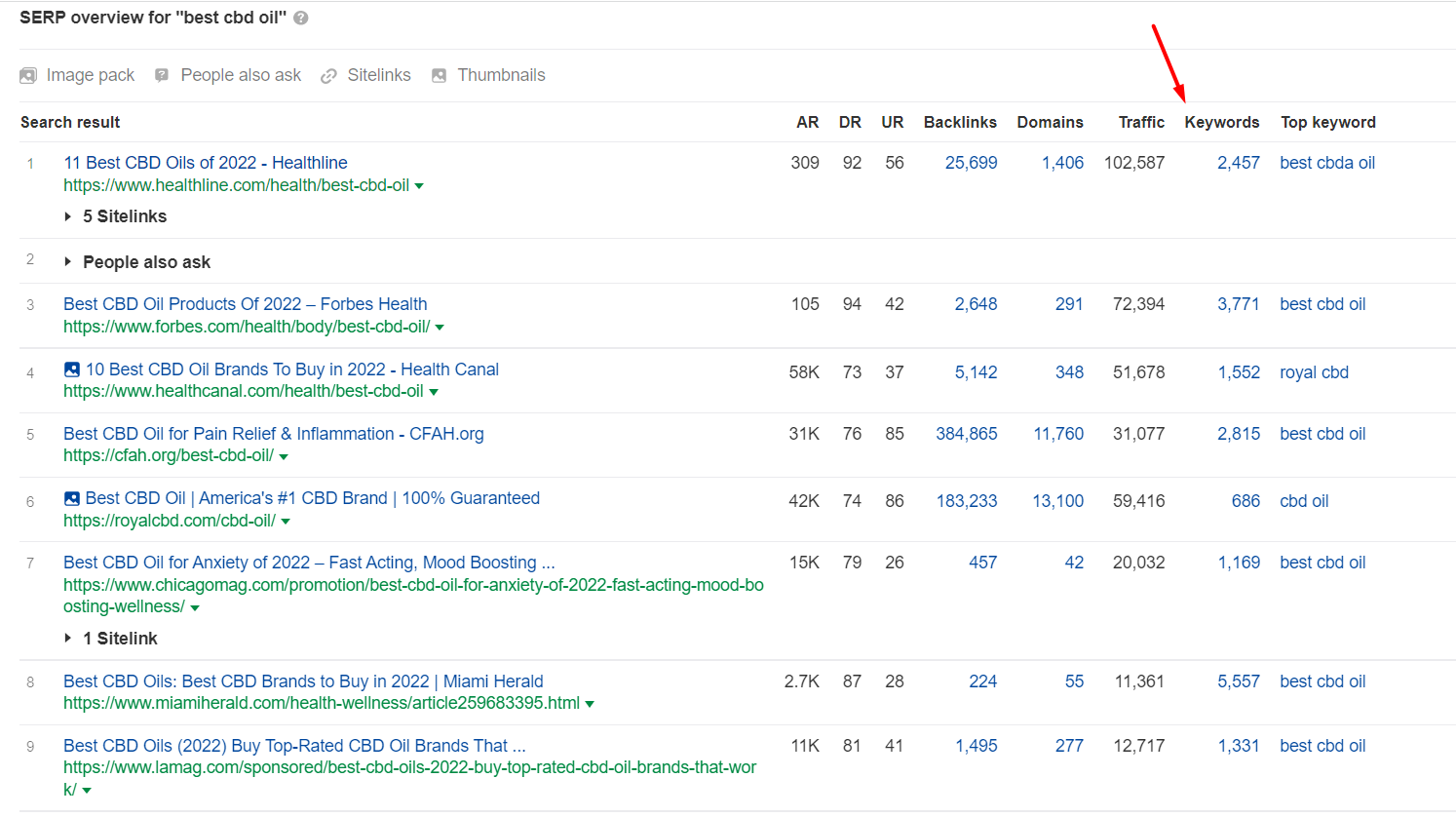How Many SEO Keywords Should I Use Per Page?

There’s been much contention among the internet SEO community about the number of SEO keywords per page. Some search engine optimizers say as many as you can, while others swear by trimming the numbers to the least digit possible.
This begs the question, how many keywords should I use for SEO? What is acceptable, and what is downright keyword stuffing? Are there metrics I can use to determine this figure? Are there consequences I may encounter if I go to both extremes? What works best between short- and long-tail targeted keywords?
So many website owners find it hard to pick the right number, regardless of the niche. Instead of doing things blindly, we look in-depth at search engine optimization keyword density and its importance for ranking.
Do Keywords Still Matter for SEO?
Over two decades ago, SEO keywords debuted in the online search world when search engines were invented. These words helped organize search results. Every website was crazed over these phrases because they were responsible for making websites visible to internet users effortlessly. High keyword density was the norm of the day.
Anyone intending to drive traffic to their website only had to stuff content with relevant search words to become relevant. Over the years, SEO tips have changed significantly. Business websites and bloggers still use this concept, but it doesn’t take prominence in search engine optimization.
Google revised its policy to include keyword stuffing. In the new document, overusing phrase words to increase ranking on the search engine is considered a black hat tactic. While you may think it’s doing you good, Google will be up your sleeve to demote you from your temporarily elevated status.
Keyword stuffing was a great way of getting traffic to your site, but now it only flags your site as spam and warrants rank demotion. Today, these phrases are integral in optimizing search results, but not, particularly, how most website owners think.
SEO Keywords are useful in giving your content direction, not spamming the website. People read the content posted on blogs and websites, which is why creating content that feels like it was written for the previous versions of Google’s search engine algorithms is vital.
So, what is the right way to use keywords? What’s the perfect keyword density per text? Let’s find out below.
How Many Keywords Should You Focus On Per Page?
The number of keywords you use depends on the topic you’re writing on. Some niches, such as CBD, require more keyword search volume than others. This analogy is the unavailability of multiple fast marketing channels for companies in this niche.
However, this does not mean that CBD companies should spam the web page with phrases to get the attention of prospective clients. While every other business uses a keyword after every 100 words, they get leeway to insert one of those magical phrases after 80 words.
Another essential thing to note is that using relevant keywords is much better than counting how many SEO keywords per page you have used. It ensures you attract the right crowd and that website users do not get frustrated from pogo-sticking.
Nevertheless, the recommended volume for small groups of queries is 2-5 words per page. Incorporating a minimum of 10 words works fine when it comes to much bigger articles. These are inclusive of LSI keywords. You might want to note that one page is equated to a group of pages in this instance.
If those keywords have variations, you can’t incorporate them into your content because Google classifies these words differently, even if they mean the same thing. Creating other pages for these variations keeps you away from trouble.
How Many Keywords Should You Use Per Page?
When it comes to specific numbers of keywords, it’s essential to consider the type of content you’re working on. When planning your SEO map, the page type significantly drives your target keyword number. You should analyze your competitors at the top to find the best count of keywords to use per page.
In addition, you should use NPL words to support your content and make it look organically placed. These should be seamlessly placed in between the principal phrases within your text. When it comes to content optimization, you may want to find out how many SEO words your competitors use.
This move lets you know what you should do to match or outdo their efforts. In such a case, you should use a keyword optimization tool. Our team, for instance, uses SurferSEO, which comes in handy when we want to understand the dynamics regarding our competition’s keyword choice. Let’s consider an example based on the screenshot below.

Searching for the phrase ‘best CBD oil’ shows that the competition uses a word density of 1/12-35. Therefore, we can either increase ours or stay at par with them, depending on how dense the web page will look once we finalize keyword density details.
How Many Keywords Can My Page Rank?
Keyword rankings and choosing keywords for SEO should be the least of your worries. For a high search volume keyword group, you can rank for as many key phrases you search only if you know how to use the words in your content.
According to Ahrefs, the top websites rank for at least 957 words on average, which is a considerable number. This means you can rank first for as many keywords as you possibly can. If you are starting as a CBD oil blogger, you shouldn’t fight with the bigwigs for the first spot for keywords. They use other tools and tactics to make them retain that position.

You can use related best CBD oil keywords with the same meaning. In this case, incorporating multiple LSI keywords will edge you closer to a good rank. Google shows other phrases or words that make it to the search bar when people are looking for the best CBD oil.

Find out what are the secondary keywords and their volume density, then combine some of the most prominent ones and use them in your SEO strategy. Nevertheless, some websites skim on keyword usage and still make it to the top of the search engine result page.
For example, this company specializes in selling cannabis seeds in Chicago. It ranked first on the SERP while incorporating a meager 22 keywords in its content, beating others with more traffic, backlinks, and keywords. These should be relevant to your topic if you want your SEO efforts to bear fruit. Whether soft or hard-related keywords, they simplify your work by seamlessly blending into the topic. When it boils down to low-volume keyword clusters’ you will have luck finding a few dozen queries.

Apart from using a reliable SEO strategy, the position of the URLs on the page on search results is another factor that contributes to this favorable position on SERP. So, even when using keywords, ranking still relies on backlinks.
How to Choose Good SEO Keywords?
So, you know how many keywords work for your website and the number of phrases your site can rank, but you have no idea how to choose the best keywords for SEO. Is there a formula you can use to handpick words that will benefit your site? Of course, there is. Let’s see what it entails.
Relevance
Essentially, your keyword should solve a searcher’s problem. Aside from answering their question, it would be best if you offered the most resourceful article among your industry peers.
Put Yourself in Your Customer’s Shoes
Thinking like a client is the second-best way to figure out what they want. Evaluate your services and see what a searcher would use if they were looking for a website with information to help solve their particular issue.
Use Free Tools for Keyword Research
SEO tools can be expensive if you are starting your online content writing journey. However, some free tools are available to users who do not have the leverage to a ridiculous budget. They will help you identify some of the most sought-after keywords to use for SEO in your texts.
Work Using Goals
Each company or online blogger has goals to accomplish. It could be the need for traffic, attracting particular audiences, or increasing sales. Whatever your goal is will determine what words you pick. These phrases should be relevant to your intention for you to see results.
Keep Tabs On Your Competition
Spying on the competition isn’t too bad if you’re after your business’ success. Look or some of the most accomplished entrepreneurial ventures and see their tactics to generate long-tail keywords. How successful are their tactics, and how much does it cost them? Find out everything your opponents use to get keywords and add what you can’t afford to miss to your inventory.
Conclusion
SEO and the integration of multiple keywords is still a method online businesses use to rank first on search engines. However, the SEO strategy has changed slightly to incorporate a more authentic inclusion of these phrases. Websites must ensure they go easy on the keyword density to avoid being flagged as spam sites.
A mix of main and LSI keywords creates a smooth transition from one area to the next. And businesses use SEO research tools to get ahead of the game for better success rates.
Want to rank your page at the top of all search engines? MjSeo Cannabis Agency will make your dream come true.
We've helped dozens of clients achieve remarkable results by increasing organic traffic and revenue for their online businesses. Let us put our expertise to work for you and help you reach new heights of success.








